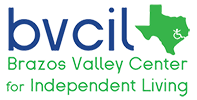Parking Mobility is having a fun contest to help promote the importance of accessible parking in Texas for people who have disabilities. Accessible parking helps people who have disabilities maintain their independence by making it easier and safer for them to get in and out of places of employment, do their own shopping, and run their own errands.
Between now and March 11, Parking Mobility is collecting photos of vehicles parked improperly in accessible parking spaces. You can email photos to Mack Marsh at mack@parkingmobility.com.
The three people who send Mack the most photos will each get a $100 gift card to Apple. Also, if you send Mack the names and email addresses of everyone you tell about this contest, every time they send a photo, you also get one point toward winning your own card. Easy!
This contest is not meant to get our neighbors in trouble. Cars in the photos sent will not be given tickets.The point is to help remind everyone why we should respect accessible parking for people who really need to use it.
Here is an example of a photo someone sent Mack:
2/26/13, 4:00 p.m., outside an Olive Garden restaurant.
Have Fun!








